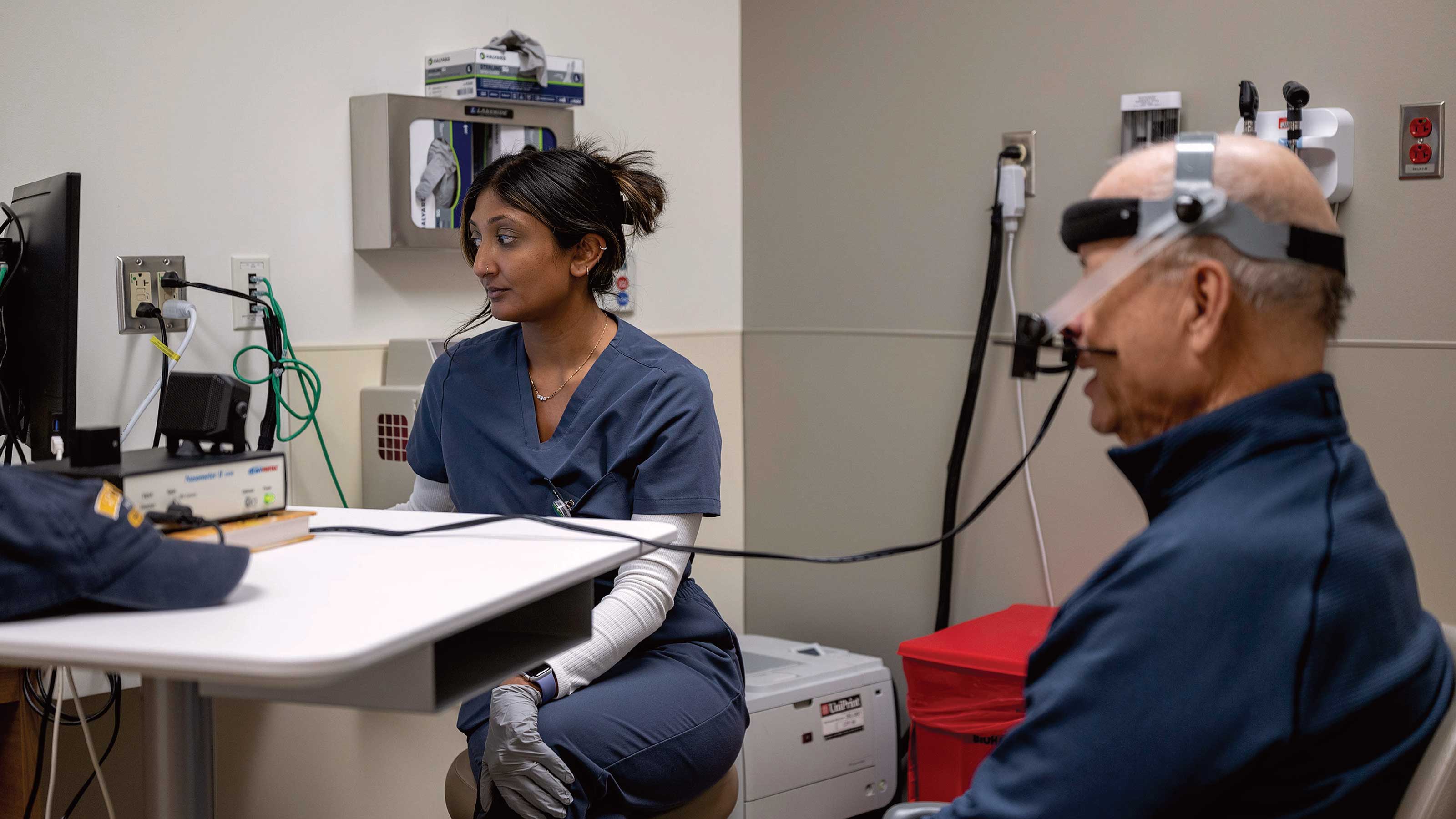
Recently you couldn’t recall the name of your neighbors’ German shepherd, the dog you’ve known for years. And maybe in the same couple of weeks, you forgot the pin for your debit card or blanked, trying to remember the name of the National Park where you vacationed just a few summers ago.
You might wonder, “Do I have dementia?”
We all forget the names of people and places as well as passwords. It’s normal. Dementia is rare for anyone under 65 and still isn’t typical for people in their 70s.
Forgetting names can be common as you age, or it may be the memory blips stem from being under stress or distracted. But if you’re forgetting common words like “chair,” finding yourself frequently confused when others are talking, and having trouble expressing yourself, it may be a sign of something more serious. It could be primary progressive aphasia, a type of dementia in which you gradually lose your ability to speak, remember and understand.
Primary progressive aphasia is one of many kinds of aphasia, a condition that has gained more interest recently following the announcement of long-time actor Bruce Willis’ retirement. Family members said he was diagnosed with aphasia and having cognitive challenges.
What is aphasia?
Aphasia can affect your ability to speak and interpret spoken language, read and write. The disorder can occur suddenly after a stroke or brain injury, or over time, such as with primary progressive aphasia. All types of aphasia typically stem from damage to the left side of the brain responsible for language. The exact location of that left-side brain injury and the extent of the injury will determine what symptoms of aphasia someone will experience.
Types of aphasia
If someone says to you, “Go doghouse beside reclining plants,” you might lean in a little and ask them to repeat what they said. You must have misheard them.
And if they repeated, “Go doghouse beside reclining plants,” you’d be confused.
Someone with Wernicke’s aphasia might say exactly that — a jumble of words that don’t make sense. An injury to the middle portion of the left side of the brain can lead to Wernicke’s aphasia.
If, however, someone was injured at the front portion of the left side of their brain, leading to Broca’s aphasia, they might leave a lot of words out (e.g., “Laundry basement” instead of “I got the laundry out of the basement.”)
What causes aphasia?
You’re most susceptible to develop aphasia as a result of a stroke. Strokes can happen if you have uncontrolled high blood pressure or cholesterol, or if you have diabetes. Eating a balanced diet heavy on fruits and vegetables, drinking in moderation and exercising regularly can help reduce your risk of having a stroke that could cause aphasia.
A doctor can refer you to a neurologist or neuropsychologist for testing that could include an MRI or CT scan along with answering a series of questions. Possibly, speech therapy can help you regain some of what you lost if you had a stroke or brain injury, but not if your losses stem from dementia. Typically, dementia is irreversible, worsening over time.
When it comes to stroke it’s best to B.E.F.A.S.T.
A foreigner in a foreign land
We live in an incredibly verbal world. Pretty much everything we do hinges on being able to say, read or interpret something written or said to us. Having aphasia can be very frustrating and isolating, kind of like living in a country where you don’t know the written or spoken language, and no one understands what you’re saying. Being patient and having compassion for people who are unable to express themselves well can go a long way to improve communication with them.

Every stroke is different, and where you go for care matters.
Ohio State’s Comprehensive Stroke Center is at the forefront of stroke care and our teams are developing and delivering the most advanced and innovative treatments.
Learn more




